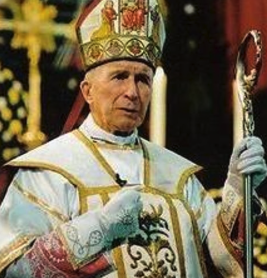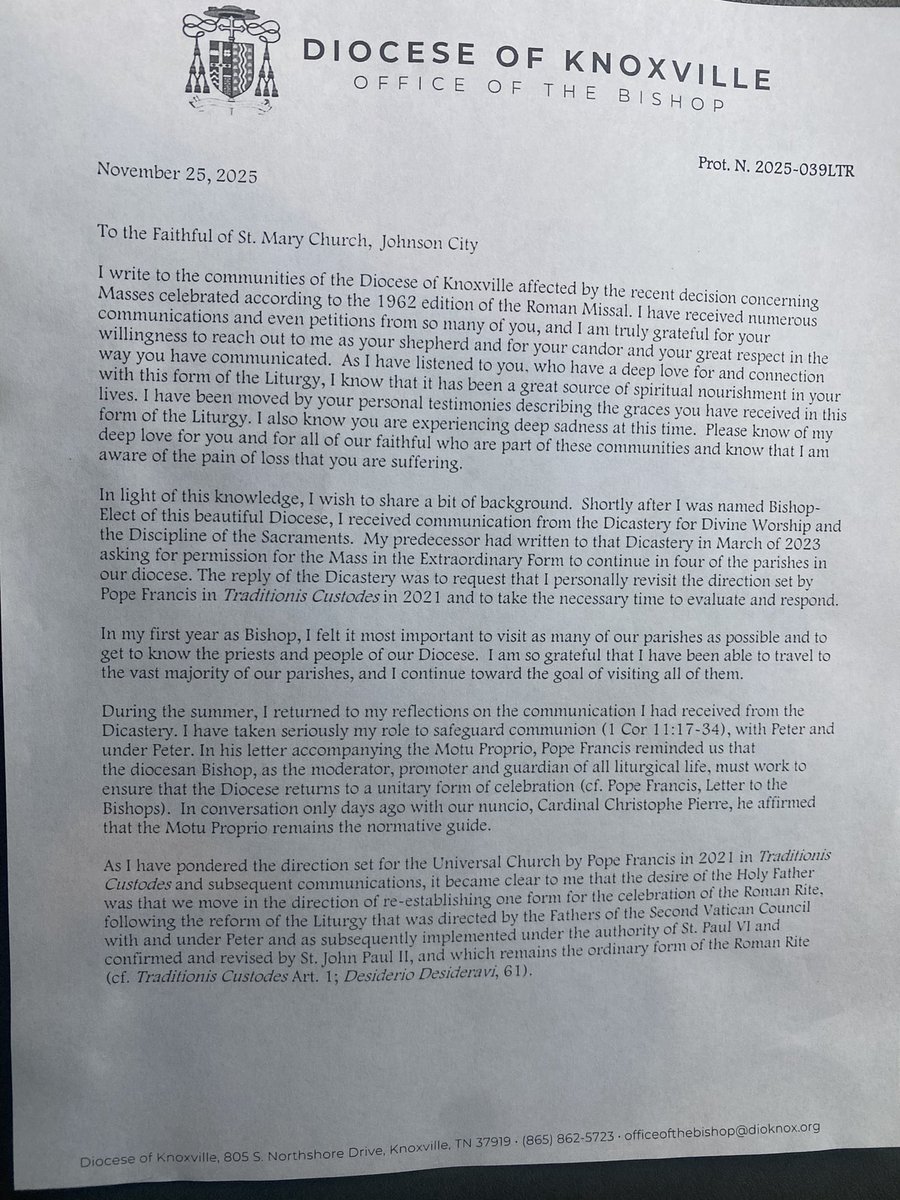‘Encounter theology’ at full throttle!
Pure Modernism: Jesuit Presbyter says the Church came from Disciples’ Experience of Jesus Christ

We know that Modernism is lurking everywhere in our day, but rarely is it found so boldly and explicitly stated as in a recent article by the Rev. Jim McDermott, S.J.
Entitled “What the Catholic Church can learn from the resurrection of Barnes & Noble”, McDermott’s monograph appeared in America, which was once a solid Catholic review but at this point is nothing but a Modernist rag, in keeping with the trajectory of the Jesuits as a whole.
But first, a quick heads-up: “Fr.” McDermott is not just a contributor to America but an associate editor. His Twitter profile proudly displays a rainbow flag emoji, and his current avatar is a cartoon Superman. He describes himself, among other things, as a “part time imaginary tiger”. So don’t say you weren’t warned.
In his article, McDermott reveals that he does not believe the Catholic Church to be a divine institution founded directly by the Son of God Himself. Instead, so he claims, it is the product of people’s experience, namely, of the “encounter” with Jesus Christ:
I would propose that the central event or idea of the church from which everything else emerges is the encounter with Jesus. The church came about as a result of people’s experience with Jesus; our theology, ethics and ecclesiology all emerge from our reflections on that experience. The church’s primary purpose, therefore, is to enable its people to continue to have that experience.
(Jim McDermott, “What the Catholic Church can learn from the resurrection of Barnes & Noble”, America, Jan. 19, 2023)
What utter claptrap! That is exactly what the Catholic Church has condemned as Modernism (Rationalism):
Recent critical Rationalists deny that the social form of the Church was instituted positively by Christ; they agree in asserting that from Christ proceeds only individual faith in Christ or devotion to God the Father, which the faithful experienced; but in no way does the social and hierarchical order of the Church come from him. Using the method of form-criticism, chronologically they study the sources, beginning with the letters of St. Paul to the Thessalonians and to the Corinthians, and from them in various ways they explain the merely natural origin of the social constitution of the Church[.]
(Rev. Joachim Salaverri, S.J., Sacrae Theologiae Summa IB: On the Church of Christ, n. 124.2; p. 50; italics given; underlining added. Full disclosure: Novus Ordo Watch benefits from purchases made through this Amazon link.)
The same Fr. Salaverri concludes: “That Christ instituted the Church as a society is implicitly defined faith” (p. 52, n. 131; italics given). McDermott’s denial, therefore, constitutes heresy.
That McDermott’s heresy is specifically that of Modernism can be gleaned, for example, from Pope St. Pius X’s Syllabus of Modernist Errors (1907). The following condemned propositions are relevant here :
22. The dogmas which the Church professes as revealed are not truths fallen from heaven, but they are a kind of interpretation of religious facts, which the human mind by a laborious effort prepared for itself.
52. It was foreign to the mind of Christ to establish a Church as a society upon earth to endure for a long course of centuries; rather, in the mind of Christ the Kingdom of Heaven together with the end of the world was to come presently.
53. The organic constitution of the Church is not immutable; but Christian society, just as human society, is subject to perpetual evolution.
59. Christ did not teach a defined body of doctrine applicable to all times and to all men, but rather began a religious movement adapted, or to be adapted to different times and places.
(Holy Office of Pope Pius X, Decree Lamentabili Sane, errors nn. 22, 52, 53, 59; Denz. 2022, 2052, 2053, 2059.)
Again, the above statements are condemned errors. Number 52 in particular condemns the Jesuit writer’s position explicitly, and the other propositions underlie or accompany his heretical theology in one way or another.
Furthermore, the Oath against Modernism Pope St. Pius X decreed in his Letter Sacrorum Antistitum (1910) to be sworn by all clergy, pastors, confessors, preachers, religious superiors, and seminary professors, also rejects McDermott’s position exactly:
…Thirdly, likewise, with a firm faith I believe that the Church, guardian and mistress of the revealed word, was instituted proximately and directly by the true and historical Christ Himself, while he sojourned among us, and that the same was built upon Peter, the chief of the apostolic hierarchy, and his successors until the end of time.
(Oath against Modernism; Denz. 2145; underlining added.)
In the Vatican II Church, the Oath was abolished of course (thanks to “Saint” Paul VI), so it’s not like McDermott actually swore it. However, that is beside the point. The point is that what “Fr. Jim” teaches is straight-up Modernism, not Catholicism.
Now, McDermott not only has a heretical idea about the nature and foundation of the Church, he also holds to an entirely absurd notion of theology. As quoted above, the Jesuit writer believes that “our theology, ethics and ecclesiology all emerge from our reflections on that experience [of encountering Jesus Christ].”
Such a definition of theology is not only utter nonsense, it is also incredibly dangerous. What this “Catholic priest” is saying is that Sacred Theology is not a science dealing with objective, supernatural, divinely-revealed truth; rather, it is subjective human reflection on an experience. That spells the end of all theology as a source of objectively true knowledge about God and His revelation. It does away with the notion of the Catholic Faith being objectively true in the same sense and understanding for all people and all times.
The inevitable result of McDermott’s nonsensical idea is that theology becomes an insufferable mixture of subjective opinions that will continually evolve as time progresses and human conditions — existential situations, social prejudices and presuppositions, the claims of natural science, etc. — change. As man changes with the times, so must theology. That is where aggiornamento (John XXIII’s “updating”) comes in.
That is one of the fundamental errors of the so-called ‘New Theology’ (Nouvelle Theologie) and is rooted in the false notion of truth first proposed by Maurice Blondel (1861-1949). In 1924, the Holy Office condemned 12 propositions pertaining to Blondel’s Philosophy of Action. Among them is the following error:
…truth is not found in any particular act of the intellect, in which “conformity with the object,” as the Scholastics say, would be had, but truth is always in the becoming, and it exists in the progressive equivalence of the intellect and life, to wit, in a certain perpetual motion, by which the intellect endeavors to develop and make known that which experience brings forth or action demands, but still on these terms: That nothing in the entire advancement to a more finished state ever be regarded as confirmed and firmly established.
(Holy Office of Pope Pius XI, Decree concerning Propositions pertaining to the Philosophy of Action, Dec. 1, 1924)
Again, the above is a condemned error. It is evident how much the Novus Ordo theology of our day is poisoned by it.
When the New Theology with its “dynamic” notion of truth began to gain traction in the 1940s, the saintly and staunchly orthodox Fr. Reginald Garrigou-Lagrange, O.P. (1877-1964) exposed its dangers and refuted its errors:
- “Where is the New Theology leading us?” by Fr. Reginald Garrigou-Lagrange (1946)
The idea that theology should be based on subjective experience renders all theological claims relative to the individual theologian, that is, relative to his experience. It is easy to see how that leads to agnosticism, the idea that objective religious truth cannot be known at all.
As Pope Pius X stated in his 1907 encyclical against Modernism:
What is to prevent such experiences from being found in any religion? In fact, that they are so is maintained by not a few. On what grounds can Modernists deny the truth of an experience affirmed by a follower of Islam? Will they claim a monopoly of true experiences for Catholics alone? Indeed, Modernists do not deny, but actually maintain, some confusedly, others frankly, that all religions are true.
(Pope St. Pius X, Encyclical Pascendi Dominici, n. 14)
That is precisely what the Vatican under ‘Pope’ Francis (Jorge Bergoglio) is marching towards — two steps forward, one step back.
That is why he declared in 2019, together with a Muslim imam: “The pluralism and the diversity of religions, color, sex, race and language are willed by God in His wisdom, through which He created human beings” (A Document on Human Fraternity; underlining added). That is blasphemy!
It is also why Bergoglio preaches that the different religions of the world are an “enrichment” for humanity; that our religious differences “are necessary”; and that, although “in the past, our [religious] differences set us at odds, nowadays we see in them the richness of different ways of coming to God….” It is religious indifferentism and egalitarianism. It is Modernism. It is apostasy!
“Jesus saith to him: I am the way, and the truth, and the life. No man cometh to the Father, but by me” (Jn 14:6); “The man who goes back, who is not true to Christ’s teaching, loses hold of God; the man who is true to that teaching, keeps hold both of the Father and of the Son” (2 Jn 9; Knox translation).
The primary purpose of the Catholic Church isn’t to enable people to have a continual “experience” of Jesus Christ, as McDermott thinks. It is, rather, to teach, govern, and sanctify souls and thereby lead them to Eternal Life in Heaven. As Pope Leo XIII declared, “the only true religion is the one established by Jesus Christ Himself, and which He committed to His Church to protect and to propagate” (Encyclical Immortale Dei, n. 7). From this truth derives the objective obligation every human being has to embrace Roman Catholicism: “The Church is indeed conscious of her divine mission to all mankind, and of the obligation which all men have to practice the one true religion…” (Pope Pius XI, Encyclical Divini Illius Magistri, n. 39).
It’s too bad Jim McDermott does not believe that.
Image source: americamagazine.org
License: fair use




No Comments
Be the first to start a conversation